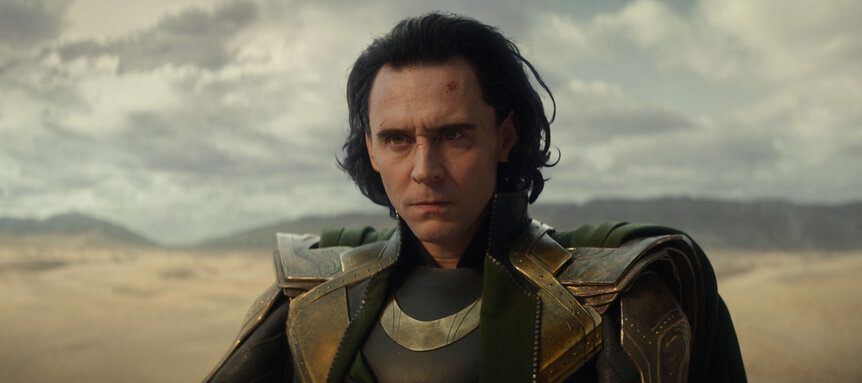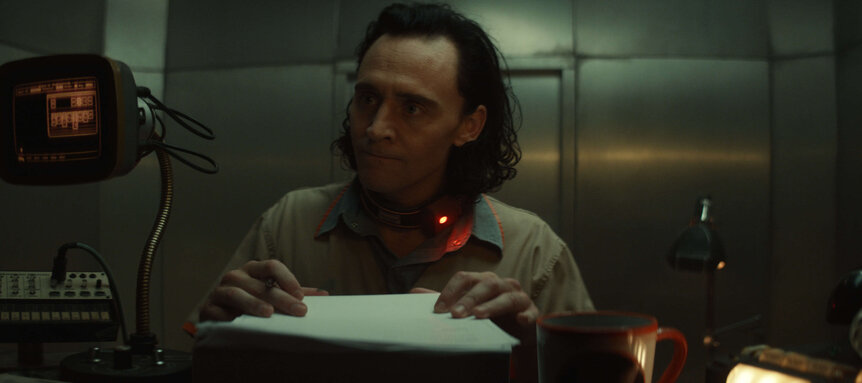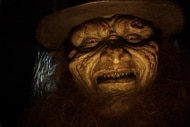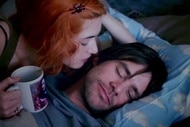Create a free profile to get unlimited access to exclusive videos, sweepstakes, and more!
Is Loki truly a villain? His own premiere investigates this very question
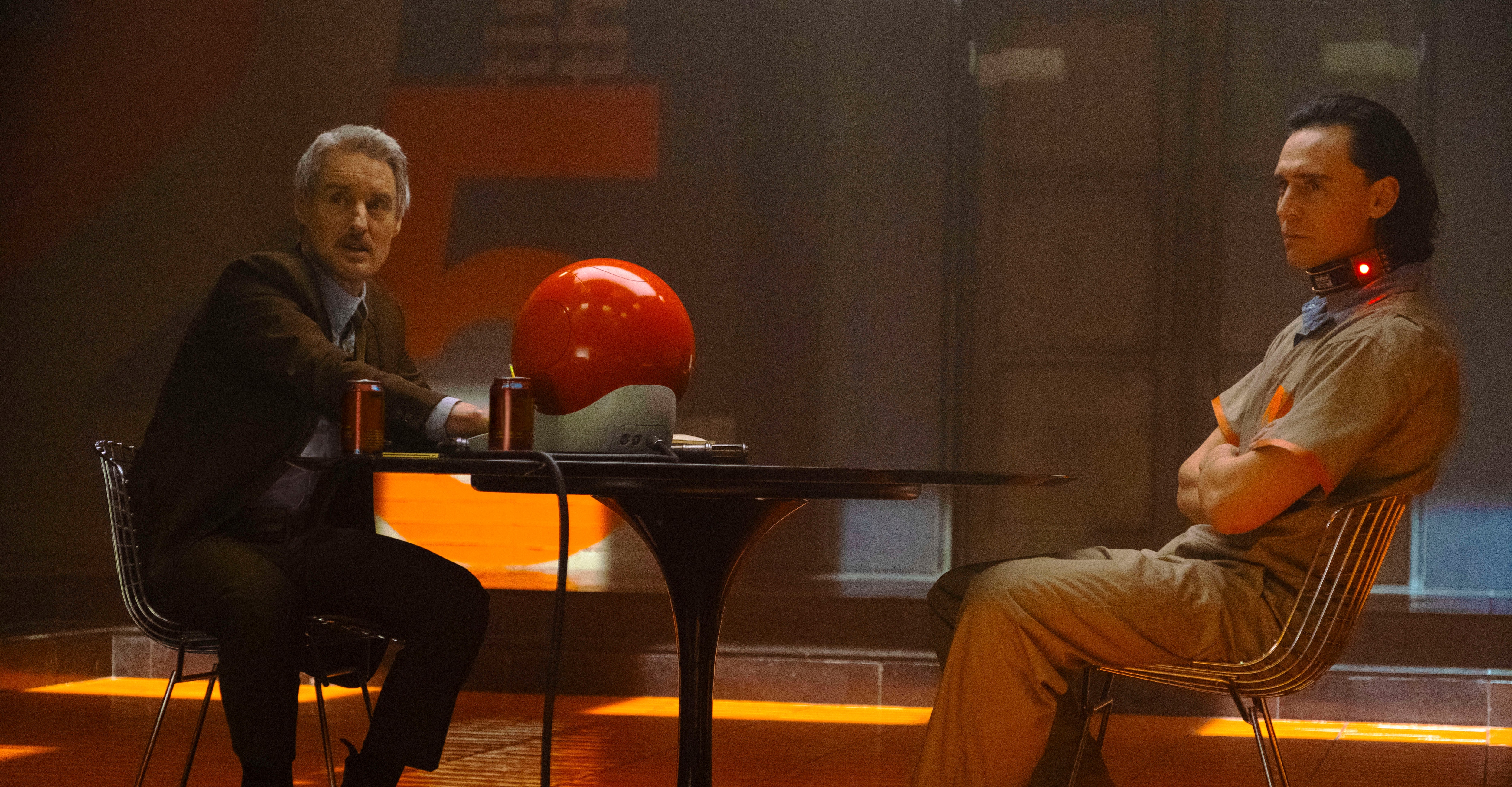
What makes a villain a villain? Is it killing, or is it the enjoyment of killing? Are they just misunderstood, or is that part of a bigger problem? Are they entitled, or are they just being used to enhance the lives (and storylines) of other people/characters?
In the Marvel Cinematic Universe, Loki (Tom Hiddleston) has always been more of an antagonist than a villain. He changes sides often. We can’t just ignore the death toll of Marvel’s The Avengers, however, a body count that he is responsible for. In the premiere episode of Loki, now on Disney+, he gets called out on it. It’s time for Loki to put all of his tricks on the table and get down to what makes him tick.
Settle in, sharpen your pencils, and check this out. Wow...
***WARNING: From this point on, there will be spoilers for the premiere of Loki. If you have not watched, then break free of the TVA and watch the episode first.***
Directed by Kate Herron and written by series creator Michael Waldron, the premiere takes its own title from one of Loki’s early MCU refrains. “Glorious Purpose” pokes a great deal of fun at the trickster god (who tries and fails to state that he is "burdened with glorious purpose" early on) and in the process makes him confront the reality that his purpose is not that glorious at all. He doesn't have to be burdened with it, either.
It’s not long after his time-bending escape in Avengers: Endgame that the Time Variance Authority, a group that first appeared in Marvel Comics in Thor #372 back in 1986, first picks up Loki. The TVA agents work for the Time Keepers, all-knowing entities that seek to preserve “the sacred timeline.” As Loki finds out once he’s taken back to TVA central, there’s nothing more dangerous than a multiverse. Once there were several, as the animated Miss Minutes (Tara Strong) says. These timelines were always at war, but not anymore! The TVA prevents this, and if an anomaly pops up (such as this version of Loki), they pop in with a team and “prune” the event.
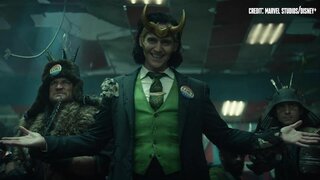
Loki is a god and he loves to tell people that. He doesn’t buy any of this at first, but over the course of the episode, TVA agent Mobius (Owen Wilson) chips away at him like a much (much) needed therapist. Mobius has convinced the judge (Gugu Mbatha-Raw) to let him handle Loki because he thinks he may need his help in dealing with a much more dangerous variant that none of his agents can handle.
Before his breakthrough, Variant L1130, aka Loki Laufeyson has to go through a Terry Gilliam-esque theme park, complete with signing off on every single thing he’s ever said. He gets a look at the entirety of the TVA, and it’s a glorious mashup of stone statues, high-tech towers, and flying cars. It’s not magic, it’s something else.
Mobius, as we said, sees value in Loki and does not want him “reset.” We also get the feeling that he’s something of a Loki fan, just like many MCU watchers. Sure, Loki has killed people… but look at him! Can’t take your eyes off of him! He’s a murderer, but... he didn’t mean it?
The TVA doesn’t care about any of that, he’s only there because he’s a variant, and he has diverged from his usual timeline. He tries to blame the Avengers, but even their Endgame stunts were part of what was “supposed” to happen. To be clear, this Loki was aware that that Endgame stuff was going on, because as he says, “Oh, believe me, you can smell the cologne of two Tony Starks.”
Though he believes that “trust is for children and dogs” Loki has no choice but to listen to Mobius after he’s been remanded to his custody. Mobius wonders what he’d do if he actually did return to his timeline. Loki says he’d rule Midgard, eventually Asgard, and then space.
“Loki, King of Space,” Mobius says, before adding, “Why does someone with so much range just wanna rule?”
He doesn’t think this purpose is so glorious. To prove it, he plays some of Loki’s past, all of which comes from the first Avengers movie. He points out that Loki loses a lot. He mentions Loki killing Phil Coulson (Clark Gregg) as well as the eye-ripping scene from that movie, and Mobius’ response to the god of mischief is, “I don’t see anything very mischievous about this.”
Loki is good at doing awful things and getting away. Physically, but other characters let him off the hook too. For that matter, so do MCU fans… he’s Loki and we love him. To prove just how good he is at all of this, the episode reveals that Loki, having lost a bet to Thor, is actually D.B. Cooper. That was the name given to an unidentified man who, in real life, hijacked a 727 airplane in 1971 and vanished with a large ransom.
In the MCU he was Loki, and he got away thanks to the Bifrost. “What can I say, I’m a mischievous scamp,” Loki says. Mobius then plays the tape forward and shows the scamp some of his future, which involves him being complicit in Frigga’s death in Thor: The Dark World.
“Do you enjoy hurting people? Do you enjoy killing?” Mobius asks, before being called away by Hunter B-15 (Wunmi Mosaku) to talk about the persistent big-trouble variant. Loki uses the chance to manipulate his “time twister” collar and get back to Casey (Eugene Cordero), the TVA worker who received the Tesseract when Loki arrived.
He threatens Casey and does get it back, but it doesn’t work there. Casey has a whole desk of infinity stones too, some of the other guys use them as paperweights. They are useless in the TVA, just like Loki’s magic. Loki wonders, “Is this the greatest power in the universe?”
He’s soon watching the rest of his future, including the death of Odin and his understanding with Thor (Thor: Ragnarok) and then his death via Thanos in Avengers: Infinity War. The tape runs out. He has nowhere left to run, and he has to engage the returned Mobius in his continued questioning.
Villains usually enjoy hurting people. The question becomes, does Loki enjoy hurting people?
“I don’t enjoy hurting people,” is his answer. “I don’t enjoy it. I do it because I’ve had to.”
Why? He continues: “Because it’s part of the illusion. It’s the cruel, elaborate trick conjured by the weak to inspire fear.” Mobius sums it up as “a desperate play for control,” and Loki then determines that yes, he is a villain.
That’s not how Mobius sees it, though. He’s interested in having Loki help him track down the dangerous variant, who, he says, he actually… Loki? We don’t see him, we only see a hooded figure take out a TVA team at the end of the episode. It seems like Loki has a new glorious purpose, and he’s just desperate and raw enough to accept it. Some may still call him a villain (eye-ripping, fascist speeches, etc.), but Mobius at least is pretty sure that he’s not a villain at all. He’s a mischievous scamp.
This bonkers, off-the-wall, infinity stones in a desk, absolutely boffo solo series suits him perfectly. Who greenlit this thing? Give them a bloody Nobel.
New episodes of Loki stream on Disney+ every Wednesday.
